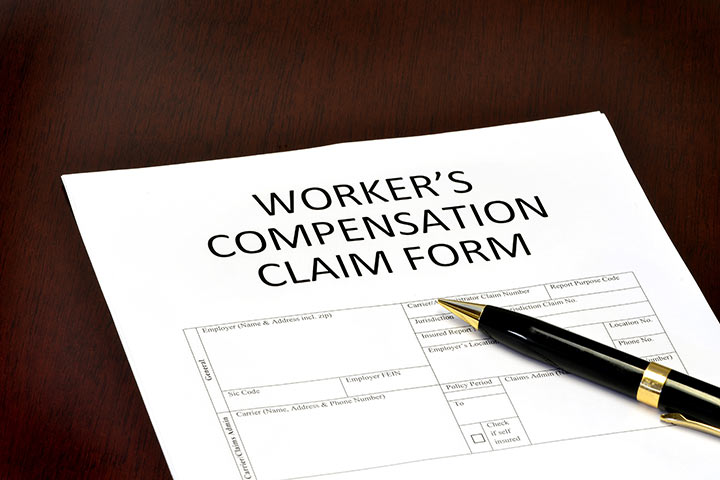How to Claim Workers Compensation Insurance based on Wica Singapore?

Injured at wok can be a nightmare and not sure if you can make workers compensation for it to recovering from you injury. And you may worried about dealing with complicated claims against your employer. In Singapore, the process of claiming is simplified for workers covered by the Work Injury Compensation Act (WICA).
The Work Injury Compensation Act (WICA) lets employees make claims for work-related injuries or diseases without having to file a civil suit under common law. It is a low-cost and quicker alternative to common law for settling workers compensation claims. You can claim under WICA singapore if you were injured in a work accident or suffered a disease due to work. You don’t have to engage a lawyer to file a WICA singapore claim.
Who Eligible to Claims for Workers Compensation?
The Work Injury Compensation Act (WICA) covers any local or foreign employee who is under a contract of service or contract of apprenticeship, regardless of salary, age or nationality.
It doesn’t cover:
- Independent contractors and the self-employed.
- Domestic workers.
- Uniformed personnel – members of the Singapore Armed Forces, Singapore Police Force, Singapore Civil Defence Force, Central Narcotics Bureau and Singapore Prison Service.
You can claim for workers compensation if you have been injured or contracted a disease as a result of work.
You remain eligible to claim for workers compensation even if:
- You no longer work for the employer or your work pass is cancelled.
- The accident happened while you were on an overseas assignment.
- The accident happened while on a flexi-work arrangement that you agreed with your employer.
Dependents of an employee who died because of a workplace accident can also make a claim on behalf of the employee.
Common Scenarios covered for Workers Compensation under WICA Singapore
You are covered under WICA if you:
- Meet with traffic accident while taking company transport between home and workplace. The vehicle is not a public transport.
- Meet with traffic accident while travelling during work and for work purpose (e.g. travel from workplace to venue for meeting), regardless of the mode of transport. You did not make any personal detour.
- Are employed by a Singapore employer during your course of employment, suffers a work-related injury during an overseas assignment.
- Are a seaman who suffers a work-related injury while on board a Singapore-registered vessel, regardless of the location of the vessel.
- Injure yourself in a work-related fight where you were a victim and did not participate in the fight, or were injured while exercising private defence, or instructed to break up the fight, safeguard life or property, or maintain law and order.
- Suffer medical conditions such as heart attack or stroke that are due to work.
Types of Claims for Workers Compensation in Wica Singapore
If you are covered by the Work Injury Compensation Act (WICA), you can claim for the following types of workers compensation benefits:
- Medical leave wages for days you were issued with medical leave due to the work injury or disease.
- Medical expenses, including your hospital bills, medication and other charges, due to the work injury.
- Lump sum compensation for permanent incapacity or death.
Non-permanent work injuries refers to an injured employee being temporarily unable to perform work and earn his usual wages after being placed on medical leave.
Workers Compensation for such work injuries consists of:
- Medical leave wages for working days covered by doctor granted MC or hospitalisation leave, up to one year from the date of the accident.
- Medical expenses related to work accident for medical treatment received within one year from the date of the accident, or up to a maximum of $45,000, whichever is reached first.
Medical leave wages
Medical leave wages are payable only for working days covered by Singapore-registered doctor-granted MC or hospitalisation leave. It is not payable for non-working days (e.g. rest days and public holidays).
Medical leave wages are workers compensation and not income. Both employers and employees need not contribute to CPF and they are not taxable.
WICA entitles you to medical leave wages according to the following rates and limits:
For this amount of outpatient medical leave (MC) | Or this amount of hospitalisation leave | Your medical leave wages are calculated based on |
Up to 14 days | Up to 60 days | Your full average monthly earnings |
15th day onwards, up to 1 year from the accident | 61st day onwards, up to 1 year from the accident | 2/3 of your average monthly earnings |
If an injured worker has taken 10 days of outpatient medical leave and 71 days of hospitalisation leave, his medical leave wages will be calculated as follows:
- For the 10 days of outpatient medical leave and the first 60 days of hospitalisation leave, it is calculated based on his full AME.
- For the remaining 11 days of hospitalisation leave, it is calculated based on two-thirds of his AME.
Medical leave wages are calculated based on your average monthly earnings (AME).
AME is computed based on your earnings over the past 12 months before the accident date.
Generally, it includes overtime pay, but excludes transport allowances and reimbursements.
Medical expenses
Your employer will be required to pay for medical expenses related to a work accident up to the maximum limit, which is $45,000 or 1 year from the date of the accident, whichever comes first.
Examples of eligible medical expenses include:
- Medical consultation fees
- Ward charges
- Treatment fees
- Medical report fees
- Emergency medical transport charges (e.g. ambulance)
- Cost of medicine
- Artificial limbs
- Surgical appliances
- Treatments that facilitate early return to work, claimable charges include those for case management, functional capacity evaluation and worksite assessment
You can claim these medical expenses only if your treatment is prescribed and billed by a Singapore registered medical practitioner (doctor):
- Physiotherapy
- Occupational therapy
- Traditional Chinese Medicine (TCM)
These treatment must be provided by professionals registered with the respective healthcare professional council or board:
- Allied Health Professions Council (AHPC)
- Traditional Chinese Medical Practitioners Board (TCMPB)
Lump sum compensation
If you are covered by WICA, you or your family can claim for workers compensation a lump sum in the event of permanent incapacity or death.
Permanent incapacity:
When a claim is payable | When an injury or illness has a permanent effect on an employee’s ability to work |
Who receives the compensation | Injured employee |
How compensation is calculated | Amount payable = Employee’s average monthly earnings X age multiplying factor X % permanent incapacity |
Changes to compensation limits
Accidents before 1 Jan 2020 | Accidents from 1 Jan 2020 | |
Minimum compensation | $88,000 X (% permanent incapacity) | $97,000 X (% permanent incapacity) |
Maximum compensation | $262,000 X (% permanent incapacity) | $289,000 X (% permanent incapacity) |
Note:
- Permanent incapacity (% PI) is based on a doctor’s assessment after the medical condition stabilises.
- If the doctor awards 100% PI, an additional 25% will be added on top of the compensation amount.
- A notice of assessment (NOA) will be issued to notify all parties involved of the lump sum compensation.
- The insurer must pay the employee within 21 days from the date of service on the NOA.
Death:
When a claim is payable | When an injury causes death |
Who receives the compensation | Family or dependants of employee |
How compensation is calculated | Amount payable = Employee’s average monthly earnings X age multiplying factor |
Changes to compensation limits
Accidents before 1 Jan 2020 | Accidents from 1 Jan 2020 | |
Minimum compensation | $69,000 | $76,000 |
Maximum compensation | $204,000 | $225,000 |
How employees claims for workers compensation?
To claim for workers compensation, you will need to report the accident and submit MCs and medical bills to your employer. For permanent incapacity claims, your will need to undergo a medical assessment.
For non-permanent incapacity cases, report the accident to your employer and seek compensation for medical leave wages and medical treatment related to the work accident.
Non-permanent work injuries refers to an injured employee being temporarily unable to perform work and earn his usual wages after being placed on medical leave.
For permanent incapacity cases, follow these steps for filing a claim:
Step | Outcome |
Report the accident to employer | Employer reports the accident to MOM and pays medical leave wages and medical expenses. MOM sends out a claim application form. |
Submit the claim application form (for permanent incapacity) | If you wish to claim, MOM will process the claim. |
Go for a medical assessment (if you want to claim) | Degree of permanent incapacity is assessed. |
Receive the notice of assessment | Know the compensation amount. |
Note:
- You remain eligible to claim workers compensation even if you no longer work for the employer or your work pass is cancelled.
- Your employer may be waiting for the lump sum compensation from their insurance company. Nevertheless, they are required to pay medical leave wages and expenses to you first and seek reimbursement from their insurance company later.
- If you are a Work Permit holder, seek help from MOM if your employer doesn’t provide you with housing or food, or if your employer is trying to send you home before your claim is settled.





